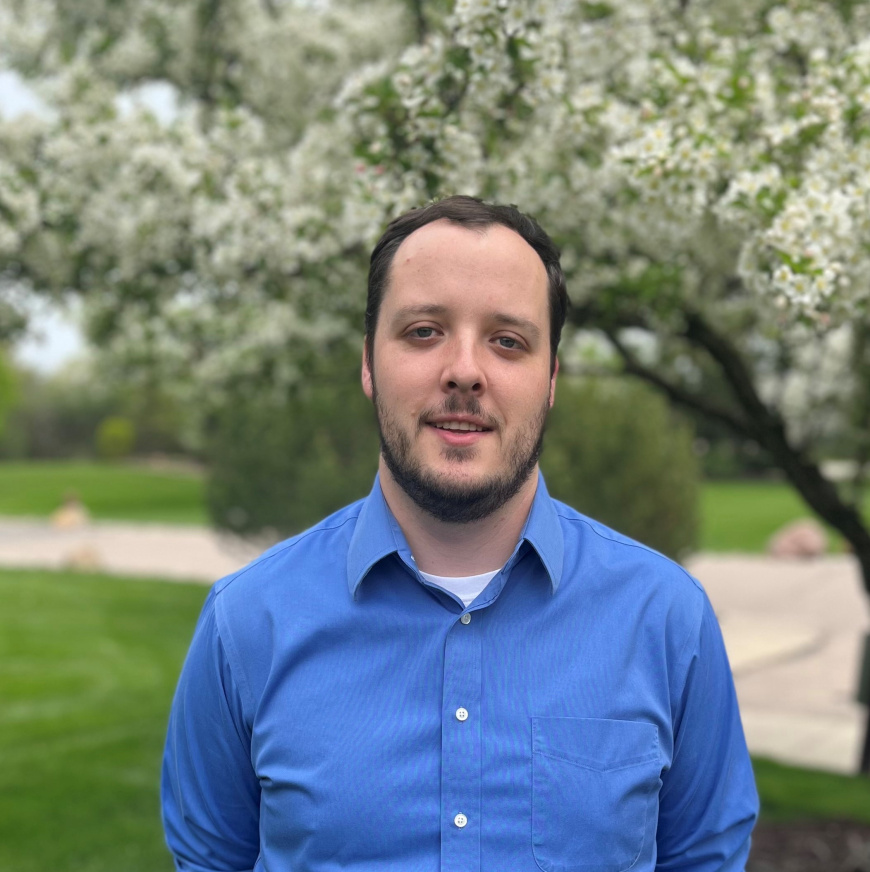
 back to all news
back to all news
SEAS alum helps global companies manage water usage in a sustainable manner

As a graduate student at the University of Michigan School for Environment and Sustainability (SEAS), Nate Jacobson (MS ’15) packed his first three semesters so full that he ended up with some spare time in his final semester. This allowed him to focus on his capstone project while also taking on a part-time internship at LimnoTech, an environmental consulting firm focused on ensuring clean, sustainable water. Having specialized in Ecosystem Science and Management - Conservation Ecology, LimnoTech, which is headquartered in Ann Arbor, provided a perfect outlet to getting his first experiences with water quality and fish sampling and research. After graduating, Jacobson settled into a full-time internship and soon after became a full-time employee. Now, seven years later, Jacobson’s expertise continues to grow and has more recently focused on corporate water stewardship.
What is corporate water stewardship? Simply put, Jacobson and his colleagues work with global companies across many sectors—food and beverage, technology, agriculture, energy, hospitality, and environmental nongovernmental organizations—to help them use water in a responsible way that doesn’t contribute to scarcity and pollution. “I’m working with companies of all types and sizes to ensure that they are managing water in a sustainable manner. My job is to support these companies as they develop and implement their water stewardship strategies, which often includes helping identify opportunities and partnerships that allow them to implement changes in an impactful way that contributes to preserving this shared, precious resource,” says Jacobson.
The companies that hire LimnoTech use water as an integral part of their business operations and as part of their water stewardship ambitions, they aim to protect and replenish water for their business, local communities and nature. “We primarily work with companies who require water for their products. This ranges from beverage companies, whose products consist mainly of water, to tech companies, who can use a large amount of water to cool their systems,” says Jacobson. “By engaging with LimnoTech, they are actively working to ensure that the water supply they are using is in good condition and that they are not depleting or polluting the water sources or environment.”
With his broad expertise—which includes biological services, water quality, stormwater management, and data management and analysis—Jacobson has contributed to several projects at LimnoTech that go beyond working for an individual client and instead support the sector as a whole. One example is the development of the “Nature-Based Solutions Benefits Explorer” tool. LimnoTech developed the tool in partnership with the CEO Water Mandate, Pacific Institute, The Nature Conservancy, and Danone. The tool offers a free, web-based starting point for organizations looking to invest in nature-based solutions and make informed decisions regarding water security, climate resilience and biodiversity conservation in order to facilitate their sustainability efforts.
Jacobson says that the skillset and experiences he acquired while studying at SEAS set him on this career path. He always kept an eye on opportunities shared by the SEAS Student Center, which is how he identified the internship at LimnoTech that grew into a full-time job. “SEAS provided me with what I needed in order to be successful as an environmental consultant. Being interdisciplinary is core to the SEAS experience, so we were always working and studying across specializations and had lots of opportunities to get connected with people in a variety of fields,” says Jacobson. “That, combined with the experience of the capstone project, which meant working with a team on a real issue, communicating, planning and working with a client, was so valuable. I currently juggle at least 5-6 projects at a time, working with different kinds of people. Learning how to communicate and collaborate the way I did at SEAS was an invaluable experience that has contributed so much to my career as an environmental scientist.”

